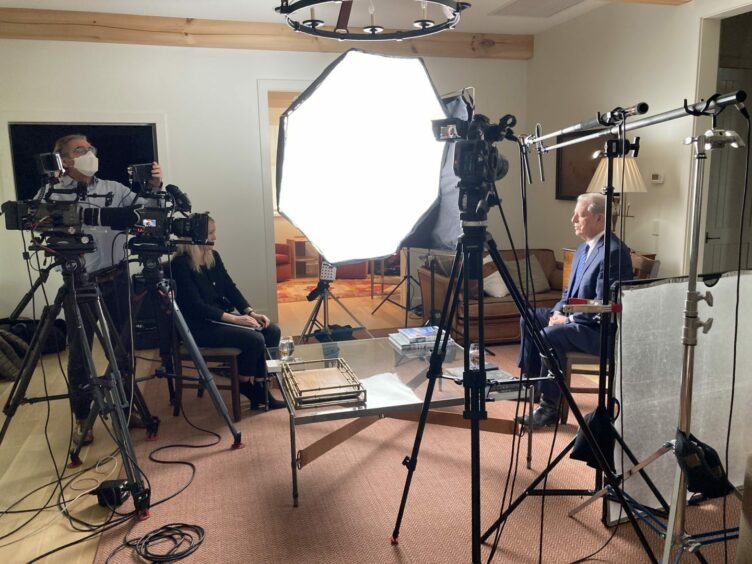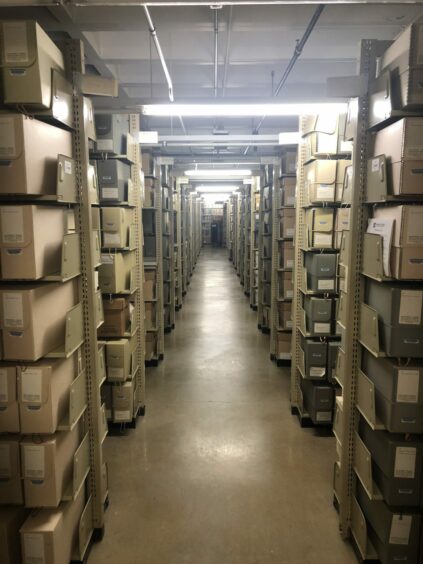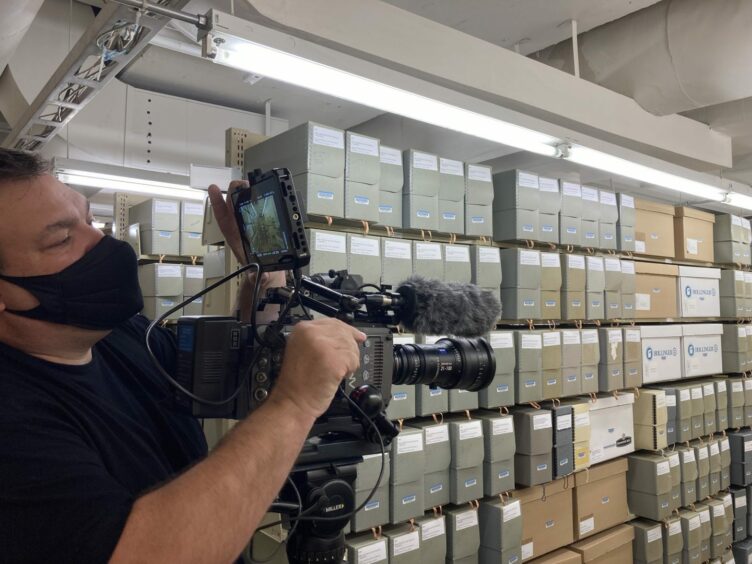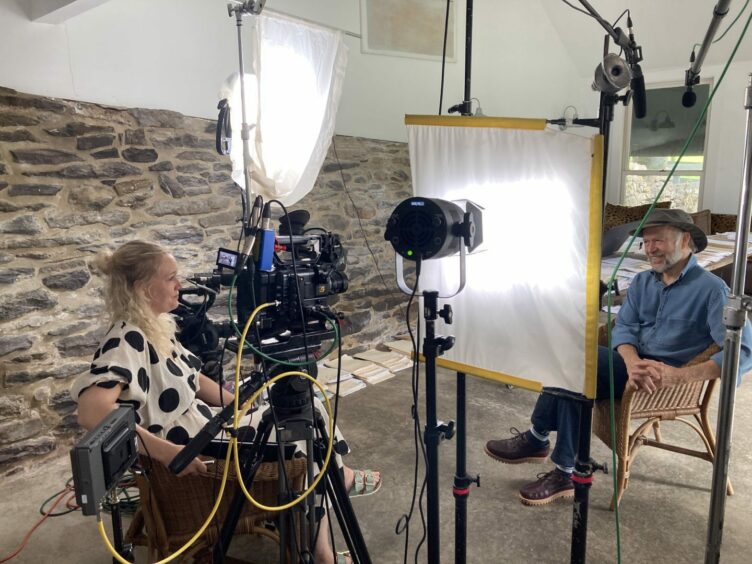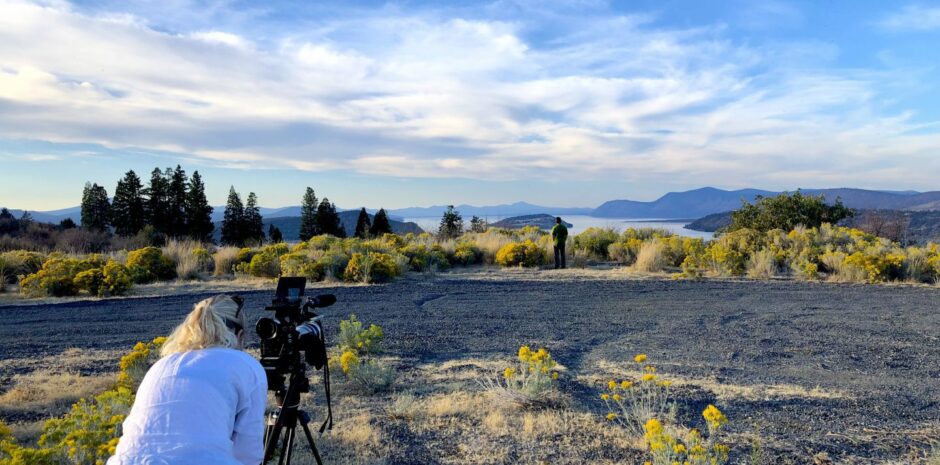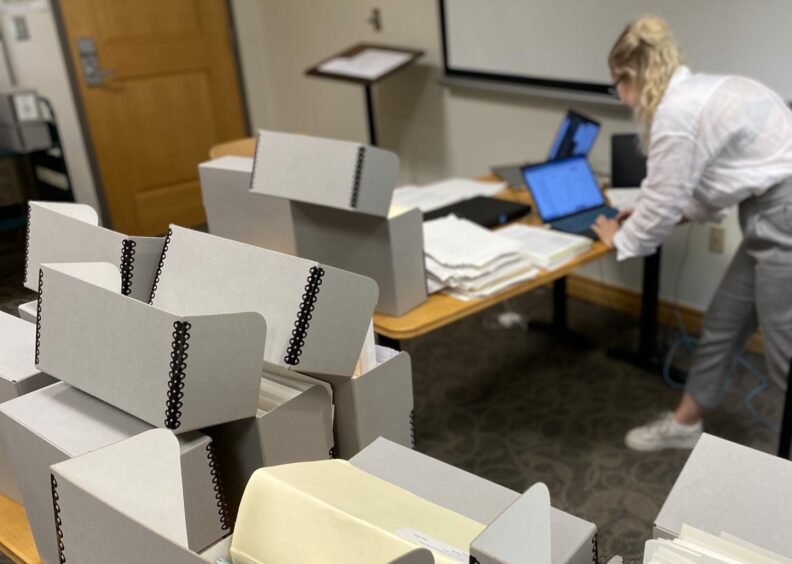 © Supplied by BBC - Jane McMullen
© Supplied by BBC - Jane McMullen Episode two of BBC’s Big Oil v the World premiers Thursday, we spoke with producer, Dan Edge and director Jane McMullen, on production, tracking down interviewees and industry pushback.
Last Thursday at 9 pm the first episode of the BBC’s new documentary series on fossil fuels and how they have impacted the planet debuted. Last week’s instalment told the “story of what the fossil fuel industry knew about climate change more than four decades ago.”
In a review of the first episode, Stuart Jeffries wrote for the Guardian: “If McMullen’s [the director of episode one – ‘Denial’] film has a moral, it’s that democracy must be healthy enough to resist commercial lobbying, so that we don’t get fooled again.”
Jeffries went on to rate the 60 minute episode four stars out of five.
younger viewers will be shocked to discover that there are people who have worked to spread denial and doubt about climate change for decades
This week’s instalment, airing at the same time, focuses on how the “oil industry continued to block action to tackle climate change in the new millennium” as the scientific evidence of global heating grew.
What the Big Oil v the World producer and director had to say:
Energy voice spoke with Big Oil v the World series producer Dan Edge and director of episode one, ‘Denial’, Jane McMullen, about the experience of working on the BBC’s latest documentary series:
Energy Voice (EV): What attracted you to the topic?
Episode 0ne director Jane McMullen (JM): “As this week’s heat wave has shown, we already live with the devastating impacts of climate change.
“Communities across the world, from heat- or flood-ravaged UK villages, to the hilltop towns of northern California, where I spent time in 2019 documenting how a mega-fire swept through the town of Paradise and killed 85 people, are already being devastated by weather events which are most likely made bigger and more frequent by climate change.
“It’s a subject I’m passionate about – it’s the most important issue we face and it’s vitally important that journalists communicate it with urgency and gravity.
“So when I read that scientists at Exxon had studied climate change in the late 1970s and early 1980s, projecting temperature rise with (what’s turned out to be) remarkable accuracy, but that the company had gone on to fund a campaign of denial, I was really shocked.
“I knew we needed to find out more about how and why this happened, and tell the story in as much detail as possible.”
EV: What was the research process like? (especially in relation to the “thousands of newly discovered documents”)
JM: “We knew from the outset that the investigation was going to be challenging.
“Many of the people involved in the early history are no longer alive, and others were not willing to speak to us (ExxonMobil, the industry’s biggest player, did not grant any interviews, though it did give us a statement).
“It was clear early on that it was going to involve epic amounts of leg work and patience, rifling through dusty basements and persuading individuals to trust us with their stories, and that progress would come in fits and starts.
“Ultimately, it took many months, and involved a journey zigzagging across the United States.
“It was exhilarating each time we discovered an important document, or a new little detail came into focus.”
EV: How forthcoming were the former Exxon scientists when you spoke with them?
JM: “Sadly, many of the Exxon scientists involved in the climate research programme are no longer alive.
“Others, particularly those who remained at the company into the late 1980s and the 1990s, declined multiple interview requests.
“The experiences of the latter group, as the company’s position shifted from openness to public declarations of denial, are a vital but hitherto untold part of the overall narrative, and I hope that one day we will be able to hear them.
“The film could not have been made without Ed Garvey, Richard Werthamer and Martin Hoffert (who all feature in the documentary), as well as others we spoke to off camera.
“They generously gave us hours of their time, going through factual details as well as sharing their emotions.
“Their reflections on 40 years of climate inaction give the film an emotional ending.
“Martin Hoffert, now in his mid-80s, says he tries not to let his emotions show, but when pushed he admits he’s furious.
“Ed Garvey told us he is heart-broken at the missed opportunities: ‘it’s just squandered time, and we’re going to pay for it.’ ”
EV: Did you receive pushback from the energy sector when people started hearing about the series?
Series producer Dan Edge (DE): “Some pushback, yes. Some industry groups and energy corporations were initially keen to talk to us about their current efforts to reduce emissions or develop technologies like carbon capture, topics which are interesting and important, but of course, our focus was much wider in scope than that.
“We were interested in charting the decades-long story of how the fossil fuel industry has responded to the threat of climate change; and much of that story involves the various ways in which industry has successfully fought legislation or initiatives aimed at reducing emissions; and also confused the scientific picture.
“Unsurprisingly, this is not something that many in the oil industry want to dwell on, or be asked questions about.
“After an initial conversation with their media folk, ExxonMobil declined to grant any interviews with any current executives or scientists.
“They provided a statement that their ‘public statements about climate change are, and have always been, truthful, fact-based, transparent and consistent with the contemporary understanding of mainstream science’.
“Time and time again we were told by those in the energy sector that the world still needs fossil fuels to meet growing energy demand. And of course that’s absolutely true, and that perspective is very much woven throughout the series.
“But what struck us as we made this series is that this conversation – the need to balance growing energy demand with the threat of climate change – was already happening more than 40 years ago. And it hasn’t moved on very much.”
EV: What should people take away from the series?
DE: “The aim of this series was quite straightforward – to provide a definitive narrative record of how the fossil fuel industry has responded to climate change over the last forty years.
“Once viewers see the whole story, laid out in chronological order, I’m sure they will come to their own conclusions based on the evidence in front of them.
“I think it’s grimly resonant that the series is being released this week, when UK temperature records have been smashed.
“I imagine that some younger viewers will be shocked to discover that there are people who have worked to spread denial and doubt about climate change for decades, now that the catastrophic effects are so evident all around us.
“And I hope the series makes clear that while a transition to renewable energy is complex and difficult, it is nonetheless urgent.”
